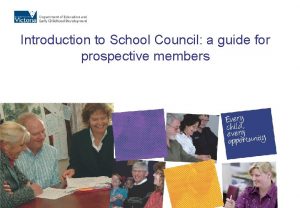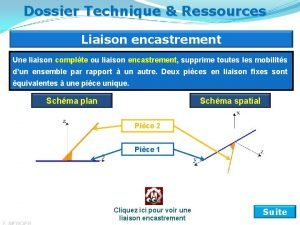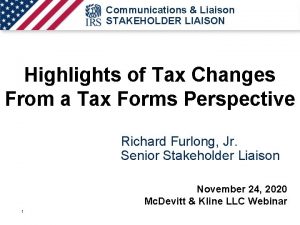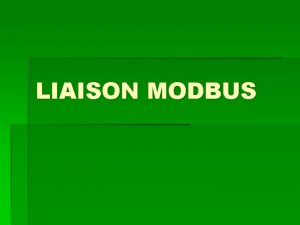School Council SC LIAISON ROLES The School Council

















- Slides: 17

School Council

SC LIAISON ROLES The School Council Liaison (SCL) is a departmental position to support school councils to carry out their duties. Ø Attends SC meetings, delivers training, develops resources, and coordinates conferences Ø Provides information services – interpreting legislation, finding resources, navigating government Ø Assists administrators, SC’s, and superintendents to problem solve Ø Performs administrative functions – appointments process, SC financials, oath-taking, monitoring reporting requirements Ø Coordinates school calendar processes with SC’s, administrators and within government Government of Yukon 1

Background Ø Education Act proclaimed in 1990 was built on a foundation of partnerships intended to provide more local input. Ø With one exception, school councils (SC) quickly replaced school committees. Ø Kluane Lake School Committee was the last to become a council in 2008. The only school board is the Yukon Francophone School Board. Ø SC’s have a significant range of authorities and responsibilities. School committees are primarily advisory. Ø The Act assigns specific responsibilities to school boards, councils, administrators, and superintendents. Ø Additional guidance is provided in regulations, policies, procedures and protocols. Government of Yukon 2

Education Act Ø Part 7 contains 97 references to SC’s. There are 24 references beyond Part 7. Ø Councils have between 3 & 7 members. There are 127 elected positions and 40 YFN guaranteed seats. 26 SC’s serve 27 schools. Ø Territorial SC elections occur every 2 years with provisions to fill vacancies between elections or by-elections may be called. Guaranteed representatives are appointed by their respective YFN. Ø School councils receive annual operating and professional development funding from Yukon Education. Ø School councils are required to provide monthly meeting minutes and annual financial reporting. Government of Yukon 3

Education Act Ø The Education Act has an entire section (Part 7) devoted to School Councils, Boards and Committees, from Section 58 through to Section 155. Ø Section 113 refers to all the shalls and mays that Councils and Boards have authority over. Ø The shalls include their participation in the school growth plan, making budget recommendations, principal hire, dispute resolution procedures, reporting requirements and attendance policy. Ø The mays include local courses of study, school calendar input, approving overnight field trips, recommending teacher or principal evaluation, and recommending the discipline, transfer, or dismissal of staff. Ø They shall review, modify and approve school rules and procedures to enforce the rules (s. 39). Ø SC’s have a role in student suspensions (s. 41). Government of Yukon 4

WHAT ARE THE MOST IMPORTANT SC ROLES? Government of Yukon 5

SC ROLES Ø SC members support two-way communication with community Ø They support, encourage, promote, and sometimes develop school programs Ø SC members participate in the school growth process, principal hire, and budgeting Ø Councils work with school administrators and superintendents to problem solve and resolve disputes Ø They advocate on behalf of their schools Ø SC’s participate in the development of school-based policies, rules, and procedures Ø They provide advice on staffing needs, school calendars, course offerings, renovations, and student transportation Government of Yukon 6

COMMITMENT • School councils should meet monthly but are required to have no less than 4 per year. • Chair and secretary&/or treasurer have additional duties • Additional meetings are sometimes required for particular tasks (i. e. principal hire, school growth plan) • SC may form subcommittees for particular work such as policy development • Reading and meeting preparation are required to be effective • SC members may volunteer for school activities such as meal programs, family events, etc. but that is not a stipulated role of the office. • Councils deal with some business items via email • SC members may participate on departmental committees Government of Yukon 7

School Growth Process Ø School growth plans are the roadmap for individual schools’ direction Ø With new curriculum and teacher evaluation processes, the school growth process is changing to a spiral of inquiry model Ø SGP teams should include SC member(s) in the process to provide a community lens Ø Under the leadership of the school administrator, these teams develop, review, modify, and monitor implementation of the plan Ø Administrators are strongly encouraged to include school council members as part of these teams, and not simply report back to them. Government of Yukon 8

Policy Development Ø School councils are involved in specific areas of schoolbased policy development – dispute resolution policy Ø A SC may “establish rule and policies on any matter within its jurisdiction” s. 113(2)(e) Ø Policy development occurs in collaboration with the school administrator, staff, and superintendent. Departmental policies provide guidance. Ø In addition to s. 113, school councils have developed policy related to behaviour, discipline, codes of conduct, attendance, graduation, punctuality, and facility use… Ø This work provides a community lens to the day-to-day operations of the school Government of Yukon 9

Dispute Resolution Ø S. 113(1)(d) …a council shall “in consultation with the superintendent, school administration and teachers, establish a procedure for resolving disputes between schools, parents, and teachers. ” Ø These policies vary school to school but contain more similarities than differences. All dispute procedures involve the main parties in a dispute before school administration, SC, or superintendent. Ø Councils should review their procedure at the beginning of the school year with their administrator, revise if necessary and communicate the process to the school community. Ø Fairness, transparency, and consistency are key elements of an effective resolution process. Government of Yukon 10

Principal Hire and Evaluation Ø The superintendent engages SC or sub-committee who work through the hiring process from posting to selection Ø SC’s participate in school administrators’ evaluations through an interview with the superintendent Ø SC may “direct” the superintendent to evaluate a principal or teacher (s. 113(2)(g)). They may direct the principal to evaluate a teacher (s. 113(2)(h)). Ø SC may recommend the dismissal, transfer, discipline or demotion of a teacher, principal or other employee in the school and provide reasons for the recommendation (s. 113(2)(i)). Government of Yukon 11

Guaranteed Representation Ø Yukon First Nations (YFN) have the opportunity to negotiate agreements with the Minister of Education to establish guaranteed seats on school councils (s. 68). Ø Guaranteed representatives support and encourage YFN perspectives in our schools through the school council table. Ø All school councils can have guaranteed seats and should be reviewed from time to time as demographics change. Ø Guaranteed representatives have the same roles, responsibilities and authorities as other school council members. Ø Uniquely, they routinely have reporting requirements with their YFN. Government of Yukon 12

CHALLENGES Ø The work is all about communication and relationships. Leadership is critical to be effective and needs to be local. Trust is a necessary foundation for all our work. Ø Some mandated and perceived roles of school council members are conflicting – advocacy verses adjudication. Being a SC member and a parent may create conflicts either real or perceived. Ø Some sections of the Education Act are not supported in regulation and/or policy resulting in different interpretations and occasional frustration. If there is uncertainty, ask us. Ø The voluntary nature of these positions sometimes creates challenges related to differing skill sets, rare personal agendas, and training. Government of Yukon 13

Other things to note • School Council Members may be paid an honorarium, up to a maximum of $80. 00 per meeting. This money comes from and is provided through their operating funds (Funding Agreement) based on 10 meetings per year. This is not considered a salary but a small stipend for their time. • The Chair may be paid up to a maximum of $100. 00 per meeting. This money is also provided through the Funding Agreement, based on 10 meetings per year. • A school Council Member can perform extra duties for the Council as the Secretary &/or Treasurer. • The Council can establish how much they wish to pay for these services. This should be re-visited at the beginning of each new term. • Secretary &/or Treasurer (if contracted outside of the Council Membership) are paid what is negotiated between the Council and the Contractor. Government of Yukon 14

Who can serve on school council? If you are a Canadian Citizen and are over the age of 18, and: • Have a child in the school or • Live in the catchment area • Anyone that is considered an Elector in the catchment area. So if you can vote in the Election you can run for council. Government of Yukon 15

Things to remember • Not all school councils are the same • All School Councils are important • Although their styles may be different, they care about the students and their school community, hence the reason for serving. • They are considered Partners in Education. Government of Yukon 16
 School council roles
School council roles Hình ảnh bộ gõ cơ thể búng tay
Hình ảnh bộ gõ cơ thể búng tay Ng-html
Ng-html Bổ thể
Bổ thể Tỉ lệ cơ thể trẻ em
Tỉ lệ cơ thể trẻ em Gấu đi như thế nào
Gấu đi như thế nào Tư thế worm breton là gì
Tư thế worm breton là gì Hát lên người ơi
Hát lên người ơi Các môn thể thao bắt đầu bằng tiếng nhảy
Các môn thể thao bắt đầu bằng tiếng nhảy Thế nào là hệ số cao nhất
Thế nào là hệ số cao nhất Các châu lục và đại dương trên thế giới
Các châu lục và đại dương trên thế giới Công của trọng lực
Công của trọng lực Trời xanh đây là của chúng ta thể thơ
Trời xanh đây là của chúng ta thể thơ Mật thư anh em như thể tay chân
Mật thư anh em như thể tay chân Làm thế nào để 102-1=99
Làm thế nào để 102-1=99 Phản ứng thế ankan
Phản ứng thế ankan Các châu lục và đại dương trên thế giới
Các châu lục và đại dương trên thế giới Thể thơ truyền thống
Thể thơ truyền thống

































